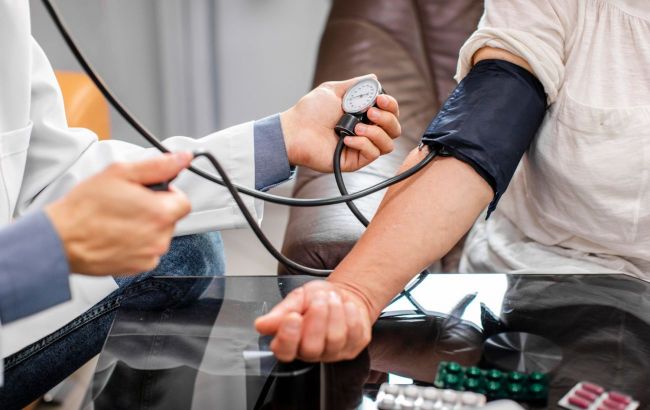What happens to your body if you sleep only 6 hours a night
 What happens to blood pressure if you sleep less than 8 hours (photo: Freepik)
What happens to blood pressure if you sleep less than 8 hours (photo: Freepik)
Even a few hours of sleep deprivation can raise blood pressure. Chronic lack of sleep can lead to a heart attack, reports Verywell Health.
How sleep affects blood pressure
The journal Sleep Medicine notes that sleep provides the body with rest for recovery and recharging. During sleep, cyclic processes occur that restore tissues, strengthen the immune system, and regulate hormones necessary for growth and repair.
For most adults, sleeping 7 to 8 hours per day is optimal. If you regularly sleep less than 6 hours, the risk of high blood pressure, cardiovascular diseases, obesity, and reduced concentration increases.
If you sleep 6 hours a day, this can impair vital functions. One of these functions is the regular nighttime decrease in blood pressure, which helps reduce the load on the cardiovascular system, allowing it to recover.
Over time, a lack of sleep can contribute to hypertension, as well as serious complications such as a heart attack or stroke.
Two main reasons for this condition:
- Disruption of the circadian rhythm. Blood pressure follows a 24-hour sleep-wake cycle called the circadian rhythm. At night, the body releases the hormone melatonin, which helps induce sleep, relaxation, and dilation of blood vessels
- Hormonal imbalance. Lack of sleep leads to a disruption between melatonin and the hormone cortisol, which contributes to wakefulness
The journal Sleep notes that frequent sleep deprivation can increase the risk of hypertension almost fourfold.
Other factors that raise blood pressure
The Centers for Disease Control and Prevention report that chronic lack of sleep can contribute to hypertension. Other factors that may increase vulnerability include:
- Obesity
- Age
- Salt intake
- Physical inactivity
- High alcohol consumption
- Smoking
How to improve sleep
According to Science Direct, the main components of sleep hygiene include:
- Following a sleep schedule. Go to bed and wake up at roughly the same time every day, including weekends.
- Creating ideal sleep conditions. Keep the room quiet, cool, and dark.
- Avoiding stimulation before sleep. Avoid caffeine and using gadgets 30-60 minutes before bedtime.
- Relaxing rituals. Reading a book, taking a warm bath, light stretching, or listening to calming music.
You should see a doctor if, apart from high blood pressure, you notice any of the following symptoms:
- Difficulty falling asleep
- Regularly waking up in the middle of the night
- Loud snoring or struggling to breathe at night
- Waking up in the morning feeling tired
- Excessive daytime sleepiness
This material is for informational purposes only and should not be used for medical diagnosis or self-treatment. Our goal is to provide readers with accurate information about symptoms, causes, and methods of detecting diseases. RBС-Ukraine is not responsible for any diagnoses that readers may make based on materials from the resource. We do not recommend self-treatment and advise consulting a doctor in case of any health concerns.

